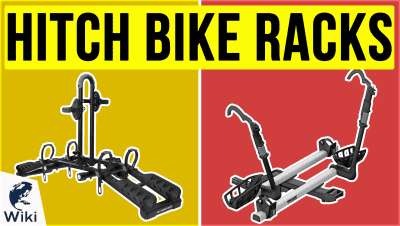5 Organizations That Support & Empower Indigenous People
Indigenous people around the world have a history of being dehumanized, attacked, and erased from history by imperial invaders. Today, many of these cultures are mistreated by both individuals and governments in their native lands. Organizations like the ones listed here support Indigenous people and empower them to raise their voices and fight for their rights. This video was made with Ezvid Wikimaker.
Groups Dedicated To Supporting Indigenous Communities
| Organization | Mission |
|---|---|
| International Year of Indigenous Languages | Encourage urgent action to preserve, revitalize, and promote Indigenous languages |
| Yellowhead Institute | Generate critical policy perspectives in support of First Nation jurisdiction |
| Amazon Frontlines | Support the struggles of indigenous peoples to defend their rights to land, life, and cultural survival in the Amazon Rainforest |
| Tomaquag Museum | Educate the public and promote thoughtful dialogue regarding indigenous history, culture, arts, mother earth, and connections to native issues of today |
| Seeding Sovereignty | Seed paths of personal, community, cultural, and energy sovereignty by amplifying the voices of new leaders working to end violence against women and the environment |
What Are Indigenous Peoples?
Indigenous peoples, also known as First peoples, First Nations, Aboriginal peoples, Native peoples, or autochthonous peoples, are ethnic groups who are considered the earliest known or original people living in an area. This stands in contrast to groups that have colonized, settled, or occupied the area in more recent history. Groups of Indigenous people can be found in every inhabited continent on Earth.
5 Issues Faced By Native Americans Today
In the aftermath of a long history of abuse and genocide, there are many issues that continue to affect Native communities in the present day. Here are just a few:
- Racial discrimination in the workforce as well as in everyday social interactions
- Crime on reservations, which is often treated as lower priority by the FBI and federal prosecutors
- Historical trauma from the effects of colonization, forced relocation, and assimilation
- Exploitation of natural resources such as oil and natural gas on native lands
- Violence against women and children, which is often perpetrated by non-Native people, making the crimes harder to prosecute
Why Indigenous Languages Matter and What We Can Do to Save Them
In Depth
In North America, and throughout the rest of the world, Indigenous peoples have had their land seized and their rights abrogated by forms of settler-colonialism that are reproduced by existing nation-states every day. This list, presented in no particular order, highlights five international organizations that work to promote Indigenous rights and cultures and fight for decolonization.
#1 on the list is the International Year of Indigenous Languages 2019. An International Year is an important cooperation mechanism dedicated to raise awareness of a particular topic or theme of global interest or concern, and mobilize different players for coordinated action around the world. This theme was adopted for the final year of the decade by the United Nations General Assembly in response to findings that 40 per cent of the estimated 6,700 languages spoken around the world are in danger of disappearing.
The initiatives constituting the celebration were designed to promote and protect indigenous languages and improve the lives of those who speak them, and to contribute to achieving the objectives set out in the United Nations Declaration on the Rights of Indigenous Peoples and the 2030 Agenda on Sustainable Development. UNESCO, the project's lead organization, developed an action plan. Learn more by perusing some teaching material.
Learn more by perusing some teaching material.
At #2, Yellowhead Institute generates critical policy perspectives in support of First Nation jurisdiction. A research center based in the Faculty of Arts at Ryerson University in Toronto, Canada, the institute aims to foster education and dialogue on First Nation governance across fields of study, between the university and the wider community, and among Indigenous peoples and settlers.
Privileging First Nation philosophy and rooted in community networks, Yellowhead is focused on policies related to land and governance. It offers critical and accessible resources for indigenous people in their pursuit of self-determination. While resistance by native inhabitants of Turtle Island has been growing, the university-based group fills the need for a national entity with an evidence-based, non-partisan, and community-first perspective. Get involved by submitting your own analysis.
For #3, we've got Amazon Frontlines, which is run by an international team living in the Amazon rainforest committed to the fight for indigenous autonomy and ecological protection. Members include human rights lawyers, environmental activists, forestry specialists, environmental health scientists, filmmakers, journalists, anthropologists, and farmers.
Members include human rights lawyers, environmental activists, forestry specialists, environmental health scientists, filmmakers, journalists, anthropologists, and farmers.
The organization assists indigenous families in their fight to ensure access to clean water and renewable energy. Its Cultural Revival Program works to promote native practices, while another initiative aims to support indigenous women's empowerment. One major project backs struggles to protect homeland territories and defend hard-won existing rights. Contribute to these efforts by making a donation.
In the #4 spot, Tomaquag Museum, Rhode Island's only such indigenous institution, is dedicated to sharing culture, arts, and history from a first-person perspective. Located in the town of Exeter, at the Connecticut border, it features an extensive collection and archive that focuses on tribal communities of Southern New England. Group tours, tailored to both youth and adults, are offered year-round.
Tomaquag's exhibits focus on native peoples of North America, with a primary emphasis on the Narragansett and other Southern New England tribes. The museum also serves as a homebase for The Indigenous Empowerment Network, which strives to eradicate poverty in Rhode Island's Indigenous communities through education, cultural competency, job training, employment, small business incubation, addressing social justice, and building equity. Pay a visit to see all that the museum has to offer.
Tomaquag's exhibits focus on native peoples of North America, with a primary emphasis on the Narragansett and other Southern New England tribes.
Finally, at #5, Seeding Sovereignty is an Indigenous, women-led collective that works on behalf of a global community to shift social and environmental paradigms by dismantling colonial institutions and replacing them with Indigenous practices created in synchronicity with the land. Its regularly published Resisterhood newsletter shares updates on the group's efforts with subscribers and the online public.
In addition to native land resistance, campaigns include efforts to promote political engagement, to end the epidemic of the murder and abduction of Indigenous women, to resist fossil fuel extraction, to amplify native storytelling, and to connect frontline communities. A webinar series spreads knowledge to youth and cultivates future leaders. Back these initiatives by making a donation.















